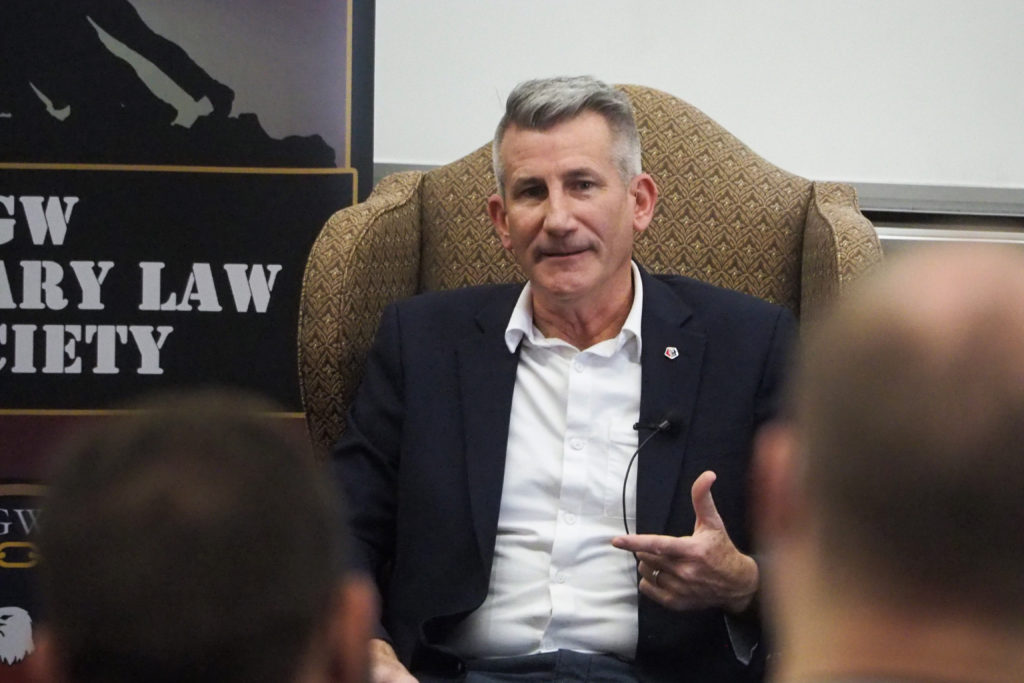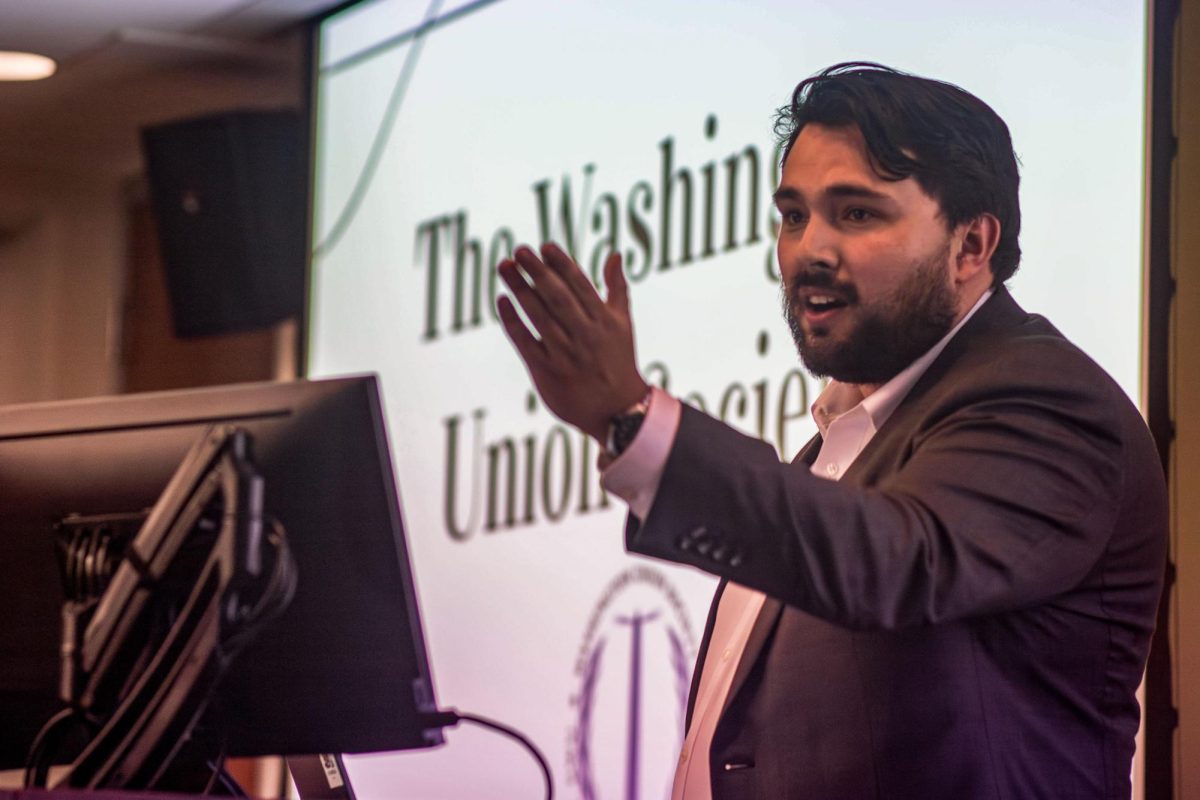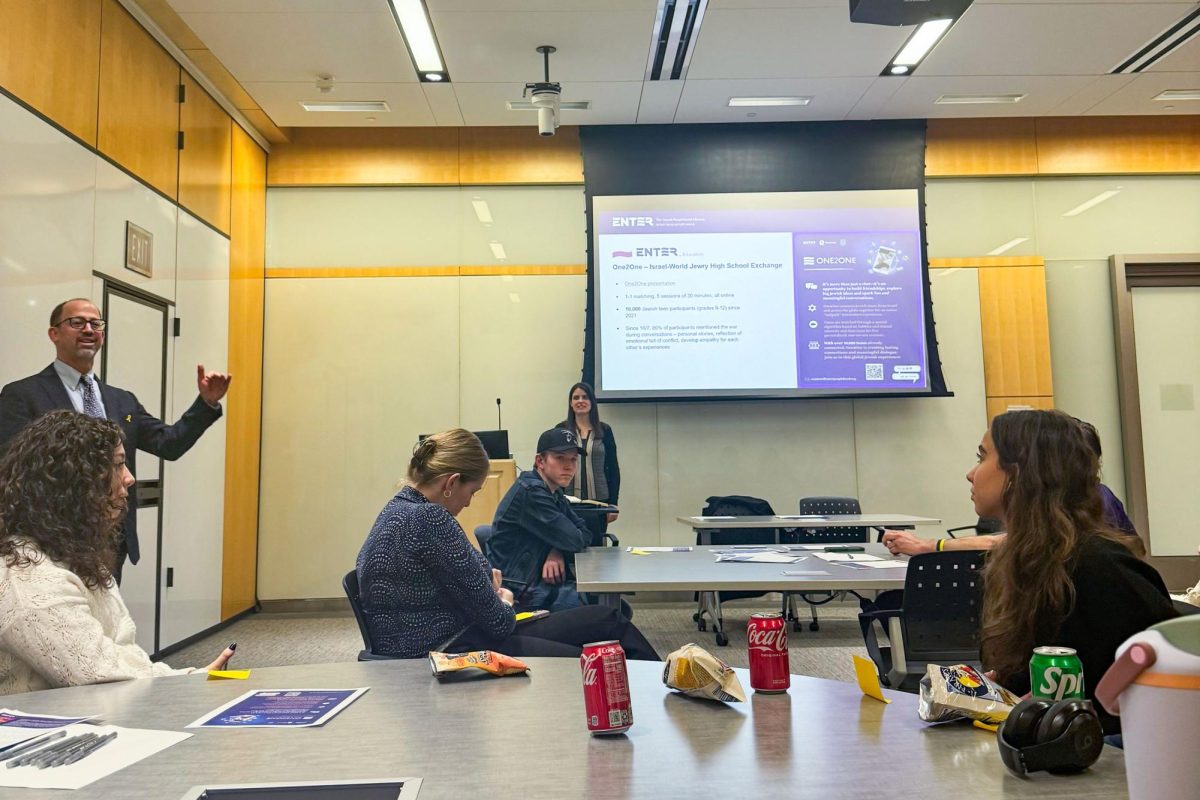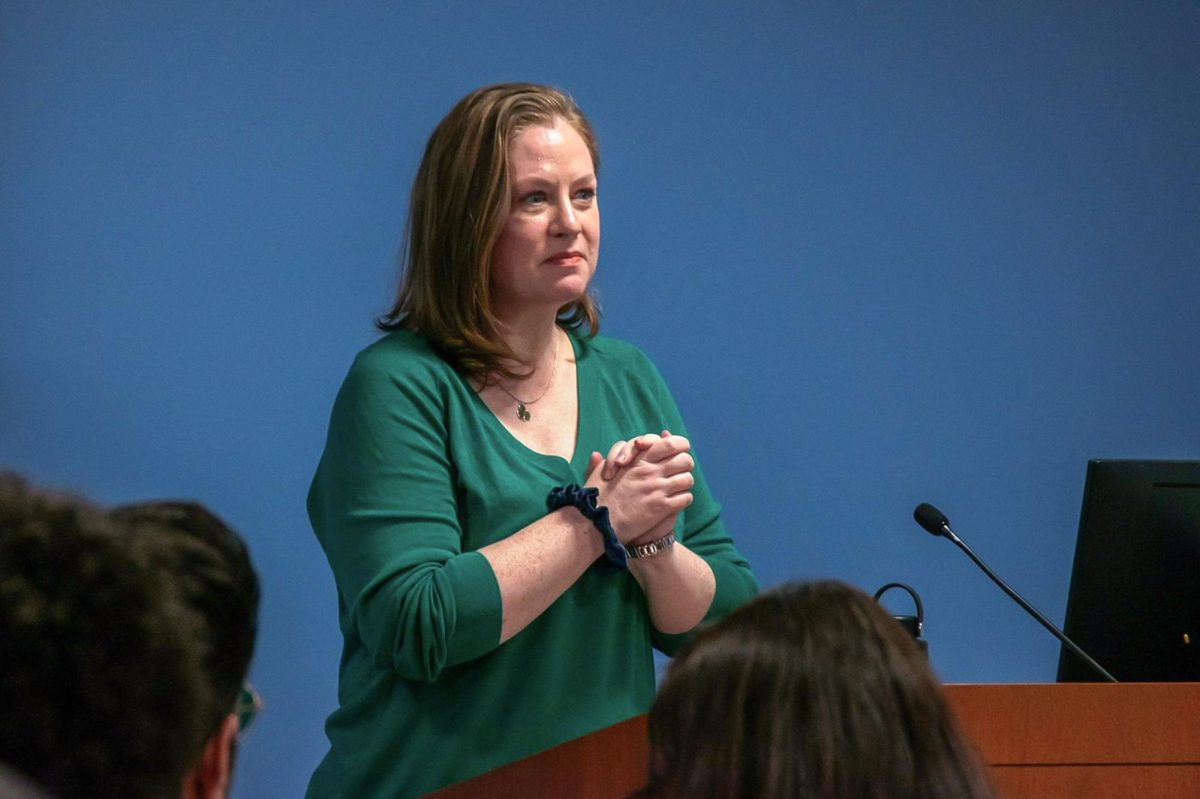The GW Veteran Law Students Association hosted a discussion on the legal and ethical challenges that U.S. Army leaders face in international and interpersonal military conflicts Wednesday.
A former commanding general discussed his leadership and disciplinary responsibilities in the U.S. Army, while his legal advisor explained his role as a military prosecutor in Afghanistan at the discussion. Henry Carras, a recent doctoral graduate from GW Law, moderated the event, which was held in a hybrid format on Zoom and in person at Lerner Hall.
John Nicholson, the longest-serving commanding general to the U.S.-NATO forces in Afghanistan, said U.S. military commanders have the authority to hear offenses committed by those under their command and impose a punishment under the Uniform Code of Military Justice – a set of criminal laws that grants commanders significant roles in the military justice system. He said commanders have to deal with issues, like sexual harassment in the military environment, which the United States processes under military law instead of civilian law.
He said sexual harassment incidents in the military often go underreported, like in the case of Fort Hood when multiple women reported experiencing harassment, assault or rape from soldiers at a U.S. Army base in Texas since 2014, because the incidents that are investigated usually lack evidence and result in the perpetrators walking away with an innocent verdict.
“We as a team really took each of these cases very seriously,” he said. “But the thing at Fort Hood was that the majority of women soldiers at Fort Hood felt nothing would happen if they reported a case of sexual assault harassment. Therefore, they didn’t report them.”
Nicholson said commanders are required to uphold the highest moral and ethical standards when administering justice and taking lethal action during armed conflict, like in Afghanistan. He said the failure to act in a legally appropriate way undercuts legitimacy and creates distrust of the U.S. Army for civilians and allies.
He said his experiences in Afghanistan taught him to have transparent communication with the Afghan people, even if it meant offering direct apologies to those affected by the U.S. Army’s strategic mistakes, like the accidental bombing of a hospital in Kunduz in 2015.
“I felt that in order to maintain our legitimacy with the Afghan people, we needed to acknowledge the fault because they weren’t going to look at the consequences for those that did this,” Nicholson said.
He said while his military career in Afghanistan wasn’t easy, he made the right ethical decisions on behalf of the U.S. to sustain American values. He said he always thought through the moral and legal dimensions of every tactile decision he made as a commander, like taking lethal action during combat.
“If we’re going to do these things in other countries, we see it in our interest to kill the leader of the enemy, then we’ve got to think about it for a second,” he said. “It’s not a checkers game. It’s a multi dimensional chess game, you’ve got to be thinking several moves ahead.”
John Ohlweiler, a judge advocate for the U.S. Army, said a lawyer is responsible for advising their clients on complex issues and must maintain “ethical conduct” whether they’re in the military, a non-governmental organization or in the corporate world. He said the legal perspective is different in the military than in civilian cases, making it difficult to apply the military command structure to the civilian justice system when ruling verdicts.
He said while lawyers may find themselves as the only voice of dissent in morally ambiguous situations, he was able to maintain the highest ethical standards as a military prosecutor.
“I look back at my time in the military, and I cannot think of a case when I was a prosecutor that we didn’t handle the right way,” he said. “It’s a disappointment to know that there were other men and women out there, who clearly didn’t handle cases the right way.”
Ohlweiler said there are some “gray areas” in legal ethics in conversations about armed conflict and collateral damage, but attorneys must identify and understand the legal risks involved in those decisions, even if not easy at times. He said for students choosing careers in law, whether in the military or not, they should build relationships on trust.
He added that finding mentors and observing great leaders like those in the Army will expose aspiring lawyers to valuable career experiences.
“That’s what’s going to create the opportunities for you to grow as a lawyer, to grow as a leader, to grow as a person, and that’s what’s going to put you on that path to that great successful life,” he said.








